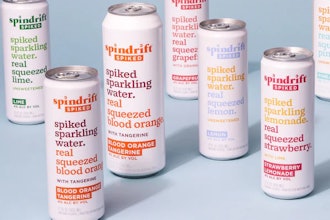
LONDON — A four-year investor engagement with 25 giant food retailers and manufacturers, led by the FAIRR investor network, has found that two in five global food giants with combined annual revenues of $459 billion now have dedicated teams to develop and sell plant-based alternatives to meat and dairy; with Tesco and Unilever ranked top.
Tesco and Unilever were praised by investors for their commitment to shifting food portfolios to more sustainable protein sources, demonstrating board-level support for a climate-aligned protein transition (the shift away from animal proteins towards plant-based and new protein sources), and completing a climate ‘scenario analysis’ on their commodity supply chains. In total 7 of 15 retailers now sell, or plan to sell plant-based meat alternatives ‘on the meat aisle’.
Investors also welcomed a 57% increase from 2019 to 2020 in food companies with Scope 3 emissions targets including emissions from animal agriculture. Despite agriculture accounting for around 30% of global greenhouse gas emissions along with forestry and other land-use, corporate targets have historically failed to address the emissions footprints of animal agriculture and its supply chains.
The data comes from the new online Sustainable Proteins Hub for investors, and ‘Appetite for Disruption: A Second Serving’ report, launched Monday by the FAIRR Investor Network. Since it began in 2016 (with 40 investors managing $1.25 trillion of assets), FAIRR’s Sustainable Proteins Engagement has grown ten-fold to include 88 investors, managing over $13 trillion in assets in 2020. The coalition of investors includes Amundi, Northern Trust Asset Management and BMO General Asset Management. It aims to encourage 25 global food retailers (15) and manufacturers (10) – including Nestle, M&S, Sainsbury’s, Carrefour, Costco, Amazon and Walmart – to diversify their protein sources to drive growth and reduce risk in a post-COVID, resource-constrained world.
The report highlights new research showing that over $1.1 billion of venture investment has flowed into alternative proteins in the first half of 2020, more than doubling last year’s total investment ($534 million). The alternative protein market is expected to grow to $17.9 billion by 2025. Amidst public concern over the link between meat production and the ongoing COVID-19 and African Swine Fever crises, retailers and manufacturers are facing a surge in demand for plant-based products.
This has been felt most acutely in China where pork consumption is estimated to drop by 35% this year, while plant-based pork brand, OmniFoods, saw record growth across China and other Asian markets. Brands like Impossible Foods and Oatly have set their sights on the region while Nestle is to build a $100m plant-based centre in China.
Jeremy Coller, Founder of the FAIRR Initiative and Chief Investment Officer at Coller Capital, said:
“The company data published today is hard evidence that big food brands are vying for their slice of the plant-based pie. They are drastically scaling-up and skilling-up their capacity to research and develop plant-based alternatives to meat and dairy. Tangible goals for a protein transition are being put in place.
“The post-COVID landscape has made 2020 a watershed year for the sustainable protein market: the sector has attracted double the investment of last year in just six months. This engagement shows which food companies are putting in place the infrastructure and innovation to benefit from this seismic shift in the ways we shop and eat; and those that will lose out. Investors are watching closely.”
Leading food companies are responding to alternative protein growth by growing specialist teams to accelerate the development of plant-based technologies and products:
- Kroger, Coles, Marks & Spencer, Sainsbury’s and Tesco all have dedicated human resources focused on plant-based product development.
- Half of the engaged manufacturers (Conagra Brands, Kerry Group, Nestle, Saputo, Unilever) said they have dedicated individuals or teams focused on alternative protein development, such as new product development or new protein sources.
- 10% of all Nestlé’s R&D employees are now dedicated solely to the development of plant-based products, while Unilever has invested $94 million in a new innovation centre housing 500 employees with a focus on plant-based innovation for brands like Knorr and Hellmann’s.






















